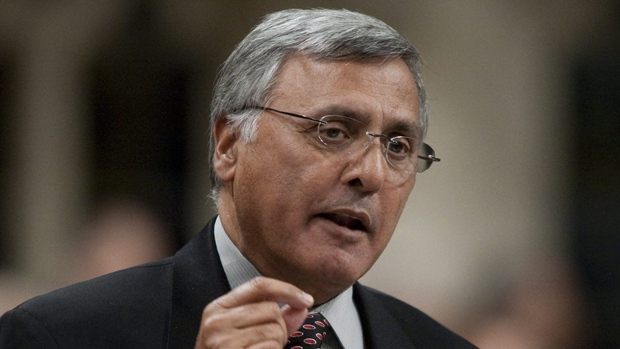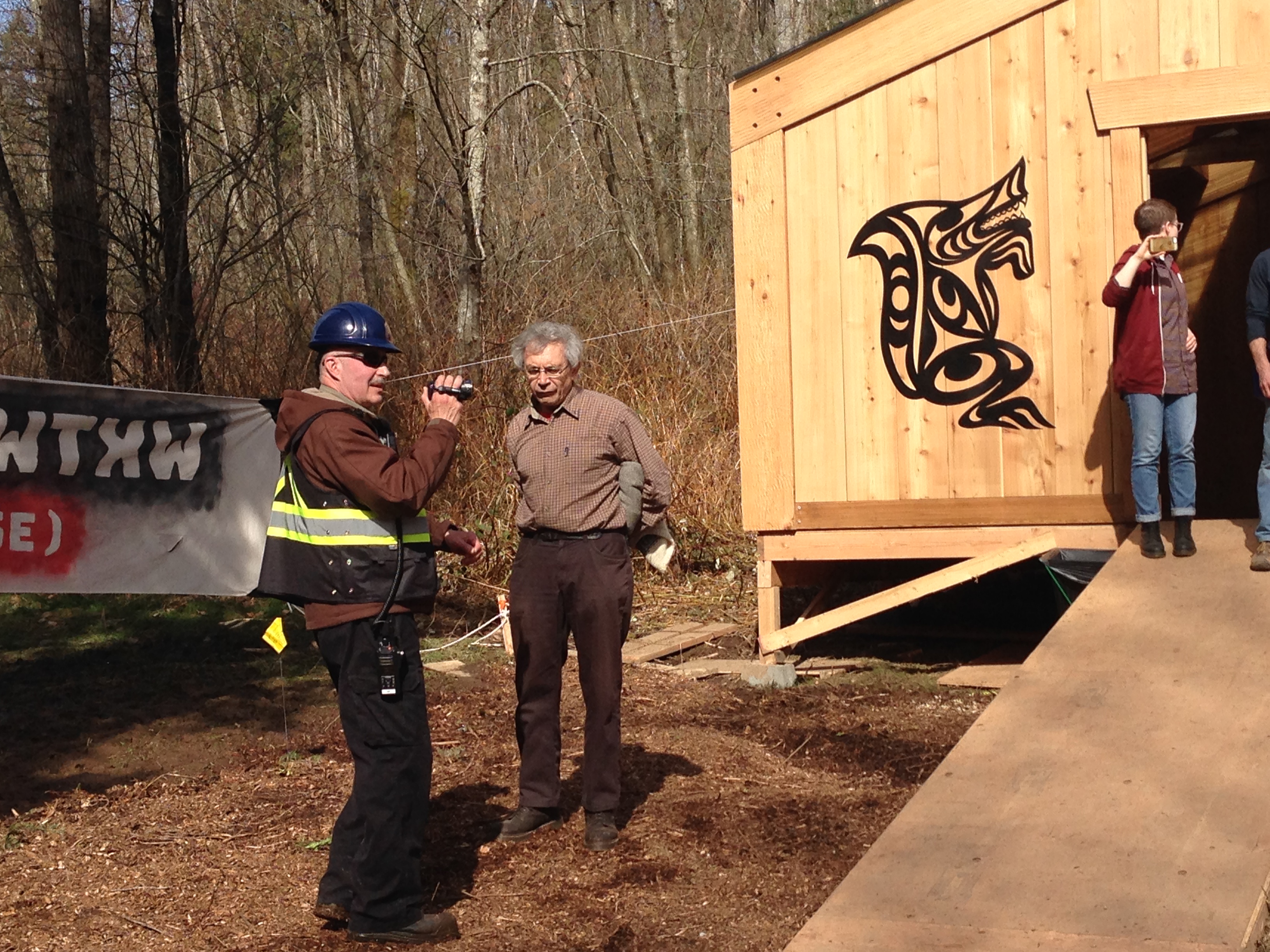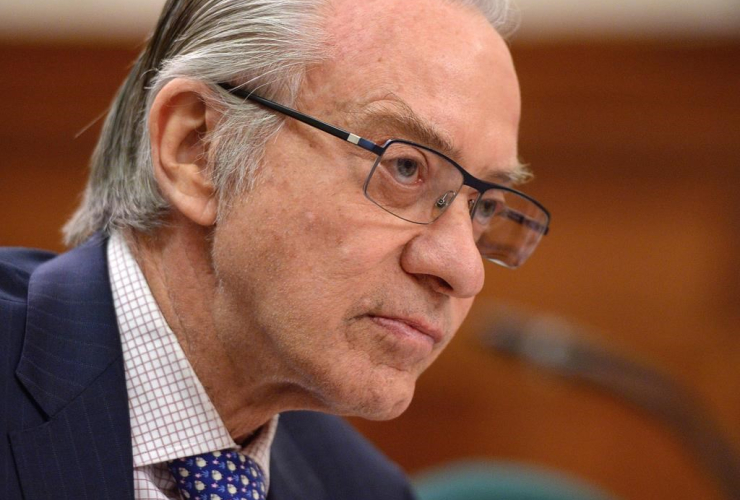As attorney-general, B.C.’s David Eby seems to be front and centre in nearly every file.
ICBC, money laundering, proportional representation, banning big money, lobbying reform — you name it, he’s involved.
It’s a stark contrast to some of Eby's recent predecessors, who appeared to take a back seat on the big issues, rather than grabbing the steering wheel.
Eby says the job is both more difficult and easier than he imagined.
“I really thought I was busy before, but to be honest, I had no idea. My schedule is completely crazy – I have a three-year-old at home, and so it’s hard to balance work and family and all the responsibilities feeling the pressure of minority government and wanting to get some things done,” he said in an interview with National Observer.
“I’m working with a lot of smart people on some really difficult problems, grounded in communities’ requests of government, and I feel really good about that, so it’s very energizing.”
Before becoming attorney-general, Eby was well known as the little guy who toppled the premier when he defeated then-premier Christy Clark in Vancouver’s Point Grey riding in the 2013 election. The human rights lawyer and the executive director of the B.C. Civil Liberties Association, who is now 40, also worked in the Downtown Eastside as an advocate at Pivot Legal Society.
Jeff Lee, a former long-term journalist for The Vancouver Sun, said Eby had a pretty fractious relationship with the RCMP during his time at the BCCLA, and was one of the main champions in the creation of the Independent Investigation Office, which conducts investigations into police-related incidents of death or serious harm.
Lee recalled that Eby’s work and advocacy in the case of Gloria Taylor right-to-die case and in several high-profile in-custody deaths in B.C. won Eby a lot of support.
“He had a huge influence as a civil rights advocate,” Lee said. “Now, today, as the attorney general, he has to wear a different hat. I am not clear on how he will navigate that increasingly difficult terrain.”

Former B.C. attorney-general and premier Ujjal Dosanjh says governments should keep attorneys-general away from political issues. Photo:Adrian Wyld/Canadian Press
A-G needs to stay ‘above the fray’
Ujjal Dosanjh, who served as B.C.’s attorney-general between 1995 and 2000 under premiers Mike Harcourt and Glen Clark, is cautioning the government against assigning Eby any partisan political files. Dosanjh, who later went on to become both the premier of B.C. and a federal Liberal Member of Parliament, was attorney-general during two very challenging events – the Gustafsen Lake Standoff in 1995 and the resignation of Clark, who was facing a legal investigation, in 1999. Keeping the office away from partisan politics is essential in case a serious legal challenge arises, Dosanjh said.
“The attorney-general needs to remain above the fray, to be able to advise the government on legal issues without worrying about where the political ball may fall,” Dosanjh said.
“I think the government would do well to not involve the attorney-general in matters that are political in nature, because if you straddle that thin line, the Chinese wall the attorney-general has to deal with every time that he deals with legal issues — criminal or civil — you create difficulties for an attorney-general, who then becomes mired in political issues.”
When Premier John Horgan asked Eby to take on three additional portfolios – ICBC, gambling and liquor – Eby’s first thought was that those files wouldn’t be particularly time consuming.
“But that’s obviously not been the case,” Eby said.
Both the ICBC file and the gambling file shocked Eby in terms of their scale, their effect on the province, and in terms of the previous government’s inaction.
“As I dig into the files, it becomes more obvious to me the number of red flags both on gambling and on ICBC that were available to the previous government, but they chose to ignore, or actively bury them,” Eby said.
‘A lot of potential criminality’
The same government staff members who told Eby about the problems with money laundering in B.C. casinos had also informed the previous government, Eby said.
“I don’t know how the previous government wasn’t totally freaked out by people bringing duffel bags full of cash into casinos,” Eby said. “It certainly freaked me out, just because the obvious question is where did the cash come from and the obvious inference is that it came from criminal activity of some kind. If someone shows up with a duffel bag full of cash, that is a lot of potential criminality reflected in stacks and stacks of $20 bills.”
They not only failed to act, but they also buried information, Eby said, and a government-commissioned report into ICBC had pages removed before it was released to ICBC senior executives.
As a result of those unpleasant surprises, two of the three “extra” portfolios have become top priorities.
“The file that is consuming most of my time right now is ICBC, for about a billion reasons,” Eby told the National Observer. “It’s the biggest file on my desk, and each dollar that ICBC loses means there is one less dollar that is available for public programs in the province.”
He’s not sure how close the government is to fixing the ICBC “dumpster fire.”
The first phase is changing the way minor vehicle accident injuries are dealt with, removing them from the court system and putting a limit on pain and suffering awards. He says other provinces have already done this, and that the amount of money saved could be enough to get ICBC back on financial track.
“But that’s just one piece of a series of reform pieces we’re doing around ICBC. The work is going to take years to get ICBC back into the black,” Eby said.
Trial lawyers in B.C. don’t support the change and they’ve said they will be legally challenging it, Eby said.
Money laundering and real estate ties to be studied
Peter German, a former senior RCMP officer who Eby calls “a really brilliant guy,” is working on a report, due March 30, about money laundering in the province. German is looking at links between money gambling and real estate, Eby said, adding that many of the people laundering money at casinos listed their occupations as being involved in the real estate industry.
Eby said the most recent monthly report he received showed just $150,000 in suspicious cash transactions at B.C. casinos.
“That was the size of individual suspicious cash transactions in previous months, and now it’s an entire month’s total, so we are headed in the right direction,” Eby said.
Eby’s ministry is also responsible for the public engagement about the proportional representation referendum planned for fall, as well as ensuring the referendum is fair.
More people participated in the public engagement process about proportional representation than that about cannabis legalization, Eby said.
“It’s hard to think of something more fundamental to a democracy than how people select their representatives to represent them in the legislature. Certainly in British Columbia it has been a topic of conversation for a long time,” Eby said.
About 180,000 people visited a proportional representation website, and spent an average of 14 minutes there, he said, and about 88,000 people filled out the detailed questionnaire for an average of 16 minutes.
Eby said the main concerns expressed by participants were about rural representation, and the possibility of holding a second referendum to confirm that any new system is working. He is preparing a report which will include the referendum question and rules, but doesn’t know when that will be ready.
Referendum may be ‘designed to fail’
Hamish Telford, associate professor of Political Science at the University of the Fraser Valley, said he doesn’t think enough time has been allotted to ensure that British Columbians know what they’re voting on.
“I’d like to see much broader public engagement and public education,” Telford said in an interview with National Observer.
“I’d like the government to take more time and, if at all possible, I’d like to depoliticize this so people can make a rational decision instead of just going with the party.”
Proportional representation generally works well, although it does result in more coalition governments, which can sometimes take time to build, Telford said. In New Zealand, the voting system was changed from first-past-the-post to proportional representation about 20 years ago, and it is working well. After 15 years, a second referendum was held to confirm the change, and it also passed, Telford said.
“I think it’s important to point out that Canada, Britain and India are the only countries that use first past the post in a parliamentary system,” he said. Other countries, like France and Australia, use alternative voting systems, like run-off elections or rank ordering.
“These are major changes to our political system and they need to be plotted out with care, and citizens have to have a reasonable opportunity to inform themselves and to deliberate,” Telford said. “This rushed process is not conducive to that and if I would hazard a guess, I would say the process is designed to fail.”
B.C. changed its voting system once before – in 1952 – but it was quickly reversed when the government changed. The province has also held two previous referendums on electoral reform in 2005 and 2009, neither of which met the threshold required for change.

Upcoming defamation law reform welcomed
Eby is also working on legislation that will prevent strategic lawsuits against public participation (SLAPP suits). These happen when someone who is advocating for the public interest, perhaps in an environmental case or a human rights case, comes up against an opponent who is well-resourced and knows how to use B.C.’s “generous” defamation laws, Eby said. Once an allegation of defamation is filed in court, the entire responsibility for refuting it falls to the defendant, Eby said.
“The result of this has been a number of high-profile cases where these advocates have been sued for defamation – everyone from city councillors, to community activists, to you name it — and have as a result withdrawn their comments and apologized, when really, it was an important discussion that needed to take place in public,” Eby said. “This issue has come up again and again.”
Similar legislation was repealed by the previous government, but Eby intends to introduce new legislation in spring.
Last week, 45 organizations and public interest advocates welcomed the move.
“I want to thank the attorney-general for supporting anti-SLAPP legislation to protect our rights as Canadians,” said Alan Dutton, member of Burnaby Pipeline Watch.
“I was sued for $5.6 million by a transnational corporation based on a statement I made to a local newspaper and for a Facebook page that carried information about protests on Burnaby Mountain. We urgently need anti-SLAPP legislation to defend freedom of expression and the right of ordinary folks to dissent.”
Despite being handed a few files tinged with partisan politics, Dosanjh said Eby is doing a good job.
“I think he is doing a marvelous job,” Dosanjh said. “I may disagree with him on some things, but I think he is handling himself with dignity, and he is an intelligent chap.”
Tracy Sherlock writes about the B.C. government for the National Observer. She can be reached at [email protected].
Mr.Eby you have made a old
Mr.Eby you have made a old Activist Happy Thank you. PR.yes .Anti Slapp yes. Draining the Swamp Yes.





Comments